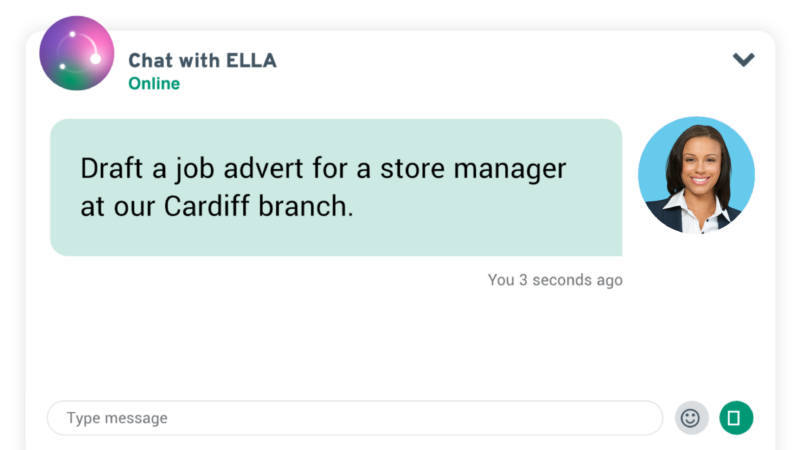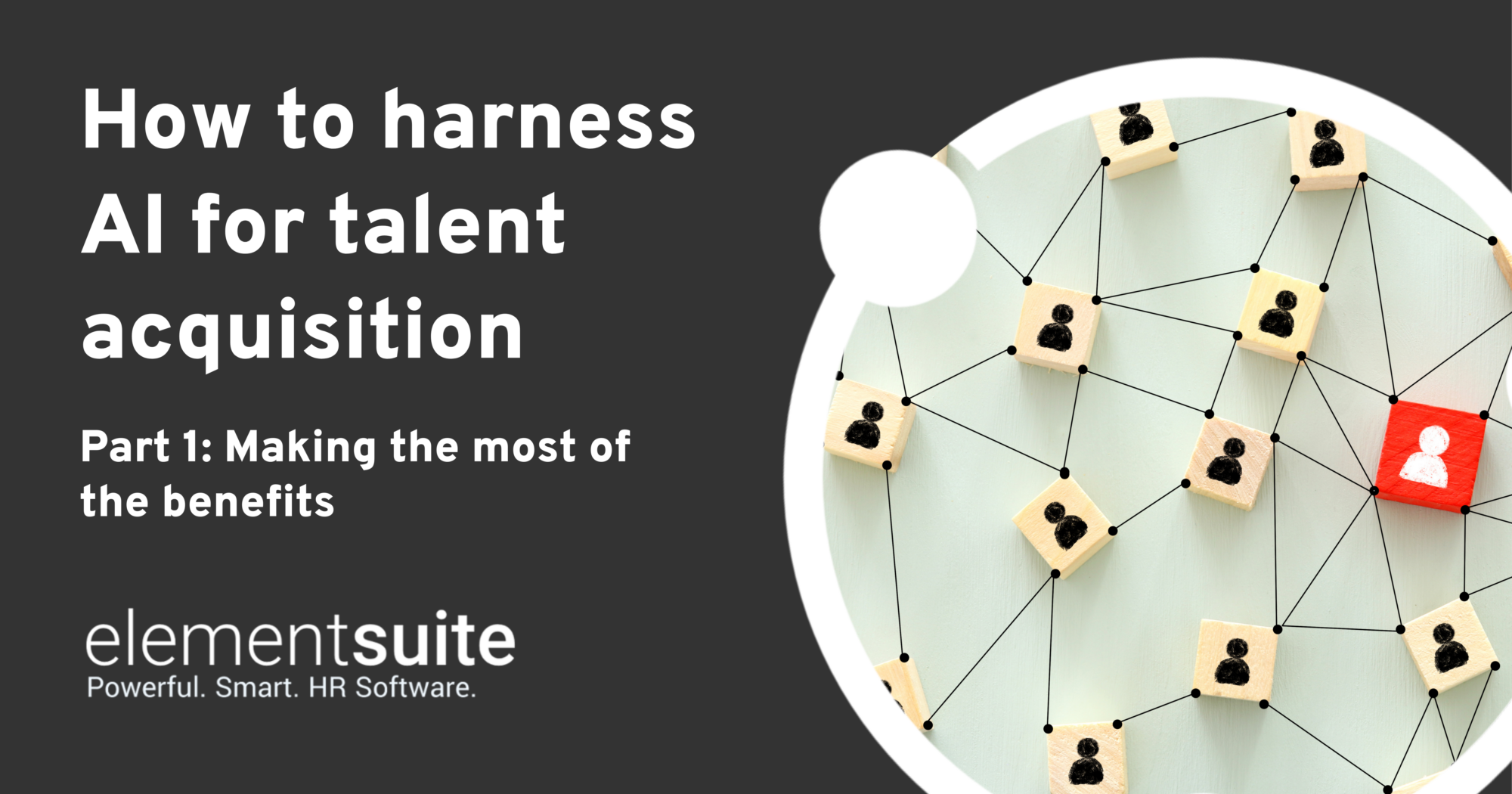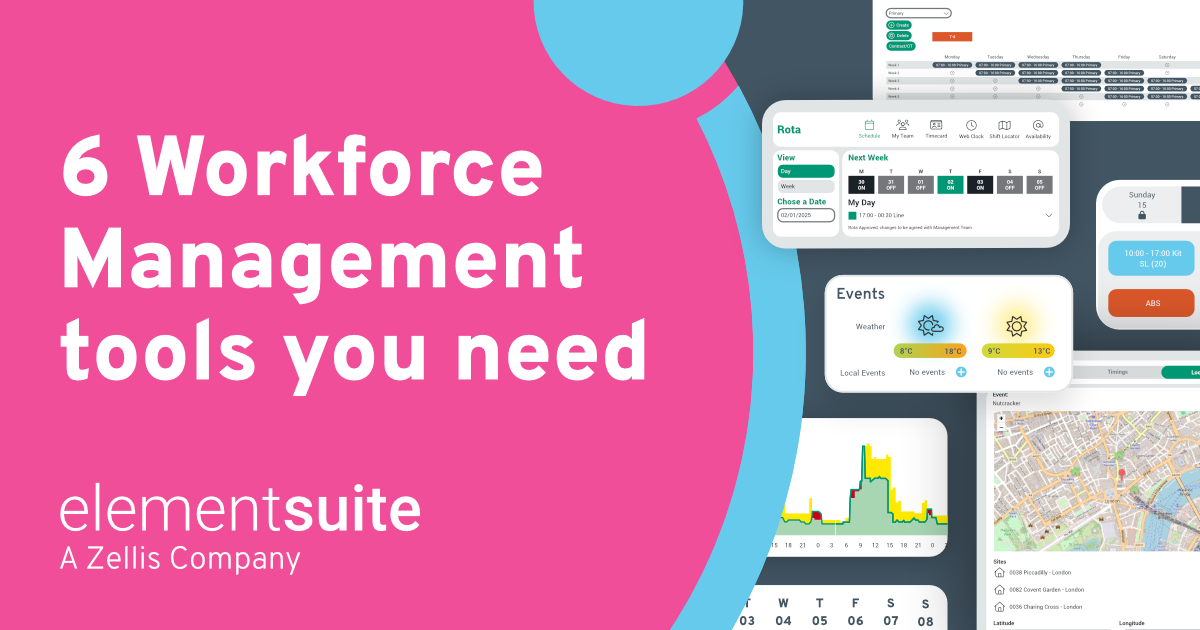AI is shaking up the world of talent acquisition. From automating those tedious tasks to keeping candidates engaged and helping you make smarter hiring decisions, AI is changing the game. By getting the hang of how to use AI in your recruitment process, you can build a faster, fairer, and more successful hiring strategy. In this article, we’ll dive into how you can make the most of AI in talent acquisition, sharing tips and tricks to help you avoid common pitfalls along the way.
The role of AI in modern recruitment
Recruiting can sometimes feel overwhelming, but AI is here to help.
AI’s role in modern recruitment is multifaceted, offering tools that streamline hiring processes, improve candidate outreach, and enhance employee retention strategies. Through deep learning algorithms, AI can analyse vast amounts of data to provide valuable insights into candidates’ skills and potential fit within an organisation. These insights enable HR professionals to make more informed decisions, ultimately saving time and resources.
AI tools such as personalised communication systems help maintain a consistent dialogue with candidates, ensuring they remain engaged throughout the recruitment process. This personalisation not only enhances the candidate experience but also improves the chances of attracting top talent.
AI-driven platforms can even predict candidate success based on historical data, allowing employers to make hiring decisions that are not only faster but also more accurate.
Understanding the recruitment process
The recruitment process can be broken down into several key stages: sourcing, assessing, and predicting outcomes for applicants. With the help of AI, each of these stages can become more efficient and effective.
Sourcing: Traditionally, finding the right candidates meant spending countless hours manually reviewing CVs and profiles—a process that could easily miss great talent. AI can take over this task, using smart algorithms to scan databases and job boards to pinpoint candidates who meet your specific criteria. This not only speeds up the process but also ensures you don’t miss out on any potential stars.
Assessing: After sourcing, the next step is assessing candidates. AI-powered tools can handle initial screenings, evaluating qualifications, experience, and even cultural fit. By analysing a candidate’s digital presence, AI offers a fuller picture of their suitability, going beyond what’s on their CV.
Prediction: Predictive analytics, a powerful feature of AI in recruitment, helps HR professionals anticipate a candidate’s future performance and likelihood of staying with the company. This foresight can be invaluable in identifying candidates who are not only a good fit but are also likely to become long-term team members, reducing turnover and contributing to a more stable organisation.
Traditional vs. AI-enhanced hiring methods
You’ll notice a big difference when you move from traditional hiring methods to AI-enhanced approaches. Manual processes can be slow, inefficient, and sometimes introduce bias. But with AI, you can automate much of the process, making it faster, more efficient, and reduce human error.
Efficiency: Automation in AI-powered recruitment platforms allows for the handling of repetitive tasks, such as CV screening and interview scheduling, at a fraction of the time it would take a human. This efficiency enables HR teams to focus on more strategic activities, such as interviewing and onboarding.

Candidate Experience: AI can also enhance the candidate experience by providing timely communication and personalised interactions. For example, AI tools can answer candidates’ questions in real-time, and automated systems can keep candidates informed about the status of their application, reducing anxiety and improving their overall experience.
Defining qualified vs suitable candidates
One of the challenges in recruitment is distinguishing between qualified and suitable candidates. While a candidate may have the necessary qualifications, they may not always be the best fit for the organisation’s culture or the specific demands of the role. AI screening tools can assist in this process by evaluating not only the hard skills listed on a CV but also behavioural traits and cultural fit.
AI-driven behavioural assessments can analyse a candidate’s responses to various scenarios, providing insights into how they might perform in the workplace. This deeper level of analysis helps ensure that the candidates who progress to the interview stage are not just qualified on paper but are also likely to thrive in the role and contribute positively to the organisation’s culture.
Think of it as having a digital matchmaker for your team!
Enhancing candidate engagement with AI-powered personalisation
In today’s competitive job market, keeping candidates excited and engaged throughout the recruitment process is more important than ever. With AI-powered personalisation, you can really make a difference by tailoring communication and interactions to match each candidate’s unique needs and preferences.
Imagine sending out customised job recommendations, follow-up emails that feel personal, and even content on your company’s website that speaks directly to the candidate. By using AI, you can make sure candidates feel valued and connected, increasing the chances they’ll accept your job offer.
Plus, AI can help keep the momentum going by providing regular updates and feedback—something that often gets overlooked in traditional recruitment. This kind of interaction not only keeps candidates in the loop but also boosts their perception of your company, helping to build a strong employer brand.
Improving talent acquisition with AI and data-driven insights
AI’s ability to process and analyse large volumes of data can provide HR professionals with valuable insights that enhance talent acquisition strategies. Data-driven insights can inform everything from the types of candidates being sourced to the effectiveness of recruitment campaigns.
For example, AI can analyse the success rates of different recruitment channels, helping HR teams allocate their resources more effectively. It can also identify patterns in successful hires, allowing organisations to refine their candidate profiles and improve the quality of future hires.
These insights can lead to more targeted and efficient recruitment processes, reducing time-to-hire and improving the overall quality of candidates. Furthermore, by continually analysing recruitment data, AI can help organisations stay ahead of trends, ensuring they remain competitive in the talent market.
AI for fair recruitment: Reducing bias in hiring
Fair recruitment is a critical concern for HR professionals, and AI offers promising solutions for reducing bias in hiring. By using algorithms that evaluate candidates based on objective criteria, AI can help eliminate many of the unconscious biases that can affect human recruiters.
Bias-free screening tools can assess candidates solely on their qualifications and experience, ensuring a more equitable approach to hiring. This is particularly important in creating a diverse workforce, which has been shown to drive innovation and improve business outcomes.
Moreover, AI can continuously monitor recruitment processes for signs of bias, allowing organisations to make adjustments as needed. This proactive approach to fair recruitment not only enhances the quality of hires but also strengthens the organisation’s reputation as an inclusive and equitable employer.
Building better candidate relationships through AI-enhanced outreach
Effective communication is at the heart of successful recruitment, and AI can significantly enhance outreach efforts. AI-powered tools can automate communication with candidates, ensuring that they receive timely updates and personalised messages throughout the recruitment process.
This level of transparency can lead to happier candidates who are more likely to view the organisation favourably, even if they do not ultimately receive a job offer. By streamlining the recruitment process and maintaining consistent communication, AI can help build stronger relationships with candidates, which can enhance the employer brand and improve the chances of future recruitment success.
The question is: What’s the question?
AI is quickly becoming a game-changer in recruitment, streamlining processes and saving you time while ensuring consistency and relevance. Whether you’re looking to improve your recruitment marketing or optimise your hiring process, AI tools like ELLA by elementsuite have tools that can help you every step of the way.
- Content generation
- AI can automate the creation of job descriptions, recruitment marketing content, and personalised candidate communication. This not only saves time but also ensures consistency and relevance.
- “How do I design and implement effective pre-employment assessments and tests?”
- “Generate a job description for a part-time retail associate with strong customer service skills and weekend availability.”
- AI can automate the creation of job descriptions, recruitment marketing content, and personalised candidate communication. This not only saves time but also ensures consistency and relevance.
- Company Information Retrieval
- Providing clear and accurate information about your company can help attract the right candidates, particularly in industries where work environment and culture are key decision factors.
- “Summarise our restaurant’s employee benefits package for inclusion in a recruitment email”
- “Retrieve and present details on our retail store’s commitment to sustainability for use in candidate interviews.”
- Providing clear and accurate information about your company can help attract the right candidates, particularly in industries where work environment and culture are key decision factors.
- 24/7 HR Assistant
- AI assistants can manage recruitment tasks and queries round-the-clock, which is especially useful for industries with non-standard working hours.
- “Query the system for all candidates who have applied for barista roles in the last two weeks and have prior coffee shop experience.”
- AI assistants can manage recruitment tasks and queries round-the-clock, which is especially useful for industries with non-standard working hours.
- Workflow & Agents
- AI agents can autonomously handle multiple steps in a recruitment process, from screening to scheduling, reducing the workload on HR teams and speeding up the hiring process
- “Calculate the average time to hire for the Assistant Chef position and identify stages where delays occur.”
- “Break down the number of applications received from different recruitment sources and recommend the most effective ones
- AI agents can autonomously handle multiple steps in a recruitment process, from screening to scheduling, reducing the workload on HR teams and speeding up the hiring process
So, how can you go about implementing AI in your Recruitment processes?
60% of HR professionals state that organisations are looking to adopt AI into their processes, underscoring the growing interest in and importance of AI in HR and business operations. But where can you begin?
1. Investigate your HR vendors’ AI offering
Firstly, you could engage with your current HR vendor to understand their approach to AI. Be sure to ask what level their AI offering goes to e.g. Machine Learning or Deep Learning and what use cases are supported. Essentially you need to feel confident that they are proficient with the latest trends and tools, so that you are futureproofed.
2. Specialist AI tools
Alternatively, you might opt for propriety AI tools that address specific use cases within your HR processes. There is a bewildering array of these available and the market is rapidly changing. One of the key considerations when using these type of specific tools is how your data is classified and how your users have appropriate authentication and authorisation to access the data (especially when this involves PII, IP and Confidential company information).
3. Layer AI tools over your existing HR system
Another option is to consider vendors like elementsuite, who as part of their platform solution are able to layer their AI technology over your existing HR system, enhancing its capabilities and functionality. This involves extracting and maintaining a foundation security model from your existing HR system which then opens up the possibilities of users to be appropriately authenticated and authorised to safely run AI models over any of your company’s PII, IPP and confidential company information, thereby tackling a vast amount of HR and Company use cases.
4. Develop in-house AI tools with your IT team
Alternatively, your IT department could develop their own bespoke AI software solutions tailored to directly make use of current trends and techniques such as RAG and fine-tuning. However, this does require a team with significant AI expertise and capabilities.
Conclusion
In conclusion, AI is transforming talent acquisition in ways that were previously unimaginable. By automating repetitive tasks, reducing bias, enhancing candidate engagement, and providing data-driven insights, AI offers HR professionals the tools they need to build more efficient, effective, and fair recruitment processes. As AI continues to evolve, its role in talent acquisition is only set to grow, making it an indispensable part of modern HR strategy. By embracing AI, HR professionals can not only improve their recruitment outcomes but also ensure they remain competitive in the ever-changing talent market!
Book an ELLA demo today to see how AI can transform your recruitment processes!
Stay tuned for Part 2, where we discuss how you can overcome the challenges of AI in talent acquisition. Subscribe to our newsletter to see be the first to get all the latest resources!




